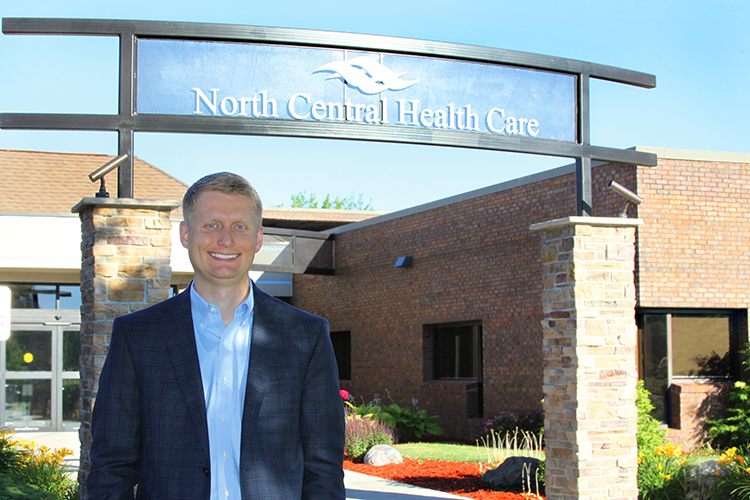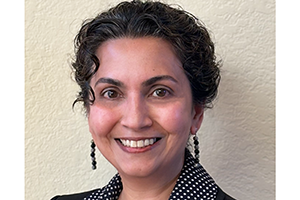Michael Loy has gone from the study of human movement to heading a major healthcare organization.
Loy, who earned his master’s degree in kinesiology from UWM’s College of Health Sciences, was appointed interim CEO of North Central Health Care in February, succeeding Gary Bezucha, who retired.
While Loy is not working directly with bones and muscles now, he said the background UWM’s kinesiology program gave him in research and analysis was excellent preparation for succeeding in the healthcare business.
Based in Wausau, North Central Health Care provides treatment for mental health issues, substance abuse and developmental disabilities, along with such services as aquatic physical therapy and skilled nursing care.
Loy talks about the path that led him to his current career.
How did you originally become interested in the health and wellness field?
I was very engaged in a healthy lifestyle in high school (at St. Catherine’s in Racine) … actively involved in sports, played football, wrestled and ran track. I wanted to eat right and improve. It was a matter of doing what you love to do when I went to college.
What led you to UWM for the master’s degree in kinesiology?
When I went to UW-Stevens Point to earn my B.S. in health promotion and wellness, there was an associate dean at Stevens Point whose work I really admired. I was planning to follow his path and become a professor. I was very interested in the physiology aspect of what we were doing, so I came to UW-Milwaukee to learn more. But, eventually I felt I wasn’t committed to the long-term path to achieve a doctorate. That’s a six- or seven-year commitment.
How has your background at UWM in kinesiology helped in your career in human resources and your role as interim CEO at North Central?
I was hired by the City of Wauwatosa to develop their health and productivity initiatives and manage the benefit plans, designing comprehensive wellness plans to help improve employees’ health. What UWM’s master’s program taught me was to read, write and understand research. It prepared me for a high-level analysis of concepts. With professors like Ann Swartz, we would read four or five research articles and had to come to class prepared to talk about them. That research mindset and analytical thinking have served me well in my career.
How did you move from human resources into this broader role in health care?
From Wauwatosa, I moved to a director of human resources role in Wausau. I became involved in government healthcare operations and got to know the CEO (of North Central). I moved over there to get experience in a more business related environment. Working in human resources, I became knowledgeable and conversant with the kind of work that we do. So becoming the interim CEO grew out of that, and now I’m having the experience of running a business.
You’re also working on an MBA right now. How are you managing all that?
I’m at UW-Madison every other week in an all-day Friday and Saturday cohort. UW-Milwaukee and professors like Scott Strath and Ann Swartz prepared me to work at a graduate level. But we have a 2-year-old and a 3-year-old, so it is challenging to keep a balance.
What do you see as the challenges facing your system and healthcare in general?
One is the level of integration required as part of healthcare reform, not only internally but externally. We’re dealing with some incredibly complex issues involving disability, mental health, substance abuse. With substance abuse issues, for example, law enforcement and behavioral health treatment need to work together. Another example: Our population with mental illness is starting to age, so their need for long-term care, especially as it relates to dementia care, provides a dual diagnosis and a pretty complex issue.
Health care is moving toward more preventive care. We’re also moving toward more community-based care where people can receive care and heal in a more home-like environment. The people who remain (in facilities) are those that are highly complex cases that require more intensive, specialized care. That is forcing the workforce to evolve. UWM’s Zilber School of Public Health is consistent with the direction we’re moving – preparing the workforce to deal with these issues.








